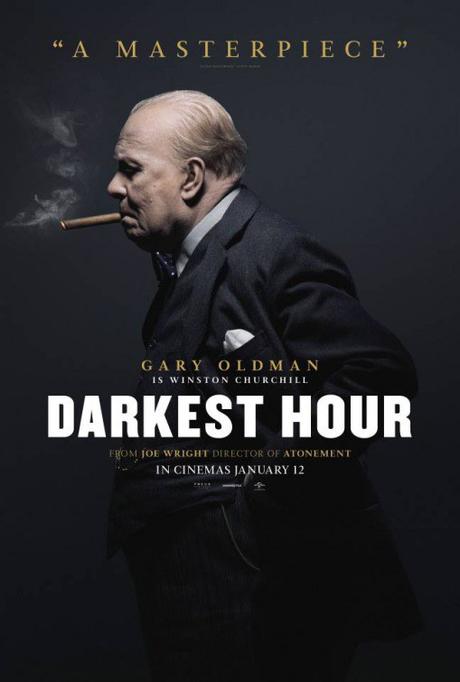 In Joe Wright’s, “Darkest Hour,” a war of words is waged, which should come as no surprise given its hero.
In Joe Wright’s, “Darkest Hour,” a war of words is waged, which should come as no surprise given its hero.
Winston Churchill was many things, he was a great orator, a writer, a mumbler, a perfectionist, a leader, and much more. “Darkest Hour,” strives to show all these facets, and, for the most part, succeeds.
Taking place at the beginning of Churchill’s time as Prime Minister during WWII, the film portrays Churchill as a man who uses his words well and often. It also shows a man who knows the power of silence, a brief but moving pause leading into his first public address as PM perfectly embodies the severity of the situation.As Churchill, Gary Oldman is smart, funny, kind, terrifying, and a force to be reckoned with. His Churchill is determined, but also has doubts about refusing to negotiate for peace. In short, he’s human and his performance is perfection.
Of course, the film is not without its “shortcomings.” Google, “Darkest Hour,” and you’ll find plenty of criticism about the film’s historical inaccuracies, misattributed quotes, and then some.
Most of the criticism is technically true, but what these criticisms mostly fail to acknowledge is that the film is not a documentary or even a biopic. It aims to capture the spirit of one of Great Britain’s finest Prime Ministers during his first dire days as the head of the government. In that respect, it succeeds beautifully.
It’s accomplished, in part, to the clever use of quotes and imagined, but still truthful circumstances. A scene in the underground has been criticized as being entirely fabricated, to which I say welcome to the movies. The scene’s purpose is not to recreate history, but to show Churchill connecting with the people, and drawing strength from their grit and determination.
It’s a story that inspires hope, reminds us of the power of one man, but also reminds us that even those who have been elevated to the status of cultural icons and gods were also mere mortals.
…just for fun:
Advertisements &b; &b;
